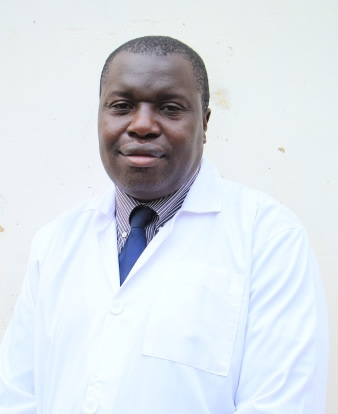Microbiology and Parasitology

Assoc Prof. Joel Bazira
HOD
The department has had continuous increase in the understanding of the structure of pathogens and the epidemiology of the diseases they cause. Recent advances in technology have led to development of new diagnostic methods for diseases caused by previously known and emerging pathogens. Due to improved means of transport, the world has become a global village, making it easy for the transfer of diseases from one place of the globe to another. The patient: health worker ratio in developing countries is still high compared to the situation in developed countries. The situation has been exacerbated by brain drain, movement of highly trained professionals to developed economies to look for greener pastures. Higher medical institutions of learning play an important role in research and disease diagnosis. There is therefore need to continuously train highly qualified medical professionals to meet the national demand for research and disease diagnosis. Considering that these professionals should be able to work internationally, there is need to train a microbiologist that meets international standards. The Master of Medical Microbiology curriculum has been designed to meet these expectations.
What about Microbiology at MUST
Many afflictions of humans are attributable to microorganisms. Diseases hitherto thought to be idiopathic are increasingly being recognized as being caused by microorganisms or an adverse immunological response of the host to antigens of some microorganisms. Diagnosis, treatment, control and prevention of these diseases require
adequate appreciation of causative microbes and their interaction with the host.
The students at Post and undergraduate studies get hands on skills.
Postgraduate
The Master of Science Degree in Medical Microbiology is designed to provide graduates with prior knowledge in Microbiology, with the scientific foundations of the subject and translating these principles into diagnosis and control of infectious disease. As with most postgraduate medical degrees elsewhere, the completion of the course
should be taken as an index of suitability for further training rather than conferring the right or implying adequacy for immediate promotion to consultant status.
JUSTIFICATION
The workload on the existing microbiologists in as far as diagnostics, teaching at the Medical Schools (undergraduates and postgraduates) and research is enormous. Regional referral hospitals require services of this specialty for rational management of patients. There is need to train more specialists in the field, to address the needs of the country. The specialists produced will be able to provide a high quality diagnostic service not only at the national referral hospital but also in regional and district hospitals and research institutions. They will teach, and conduct research and give guidance in the rapidly advancing field of microbiology as applied to patient care.
GOAL
The overall goal of this program is to train future medical microbiologists in laboratory diagnosis, management and control of problems especially related to infections in particular but also other clinical pathological aspects. The successful candidates will provide the necessary expertise to both Ministry of Health, Universities, research institutions locally and internationally.
Programmes
| Category | Duration | Study time |
|---|
